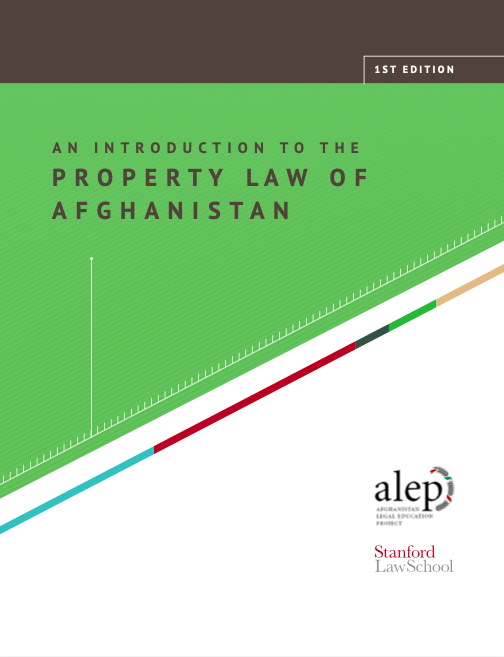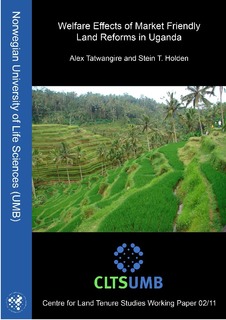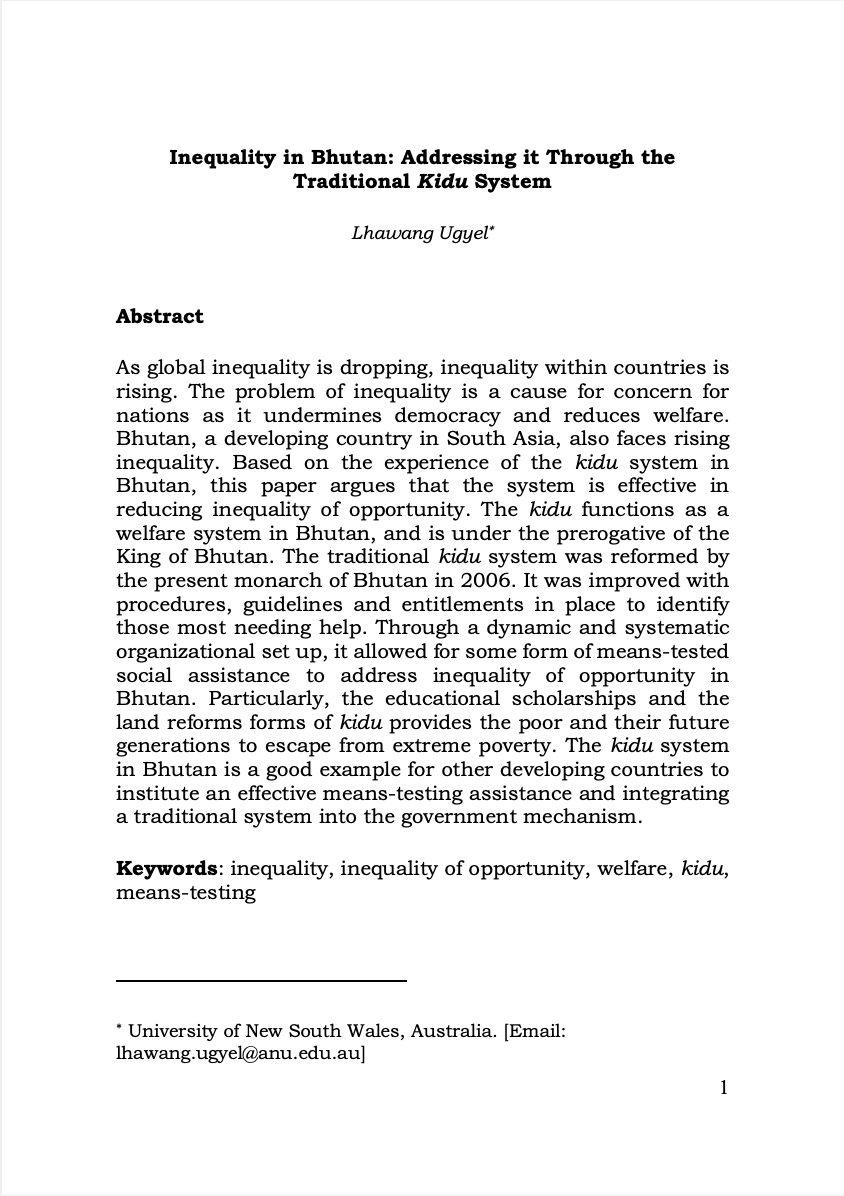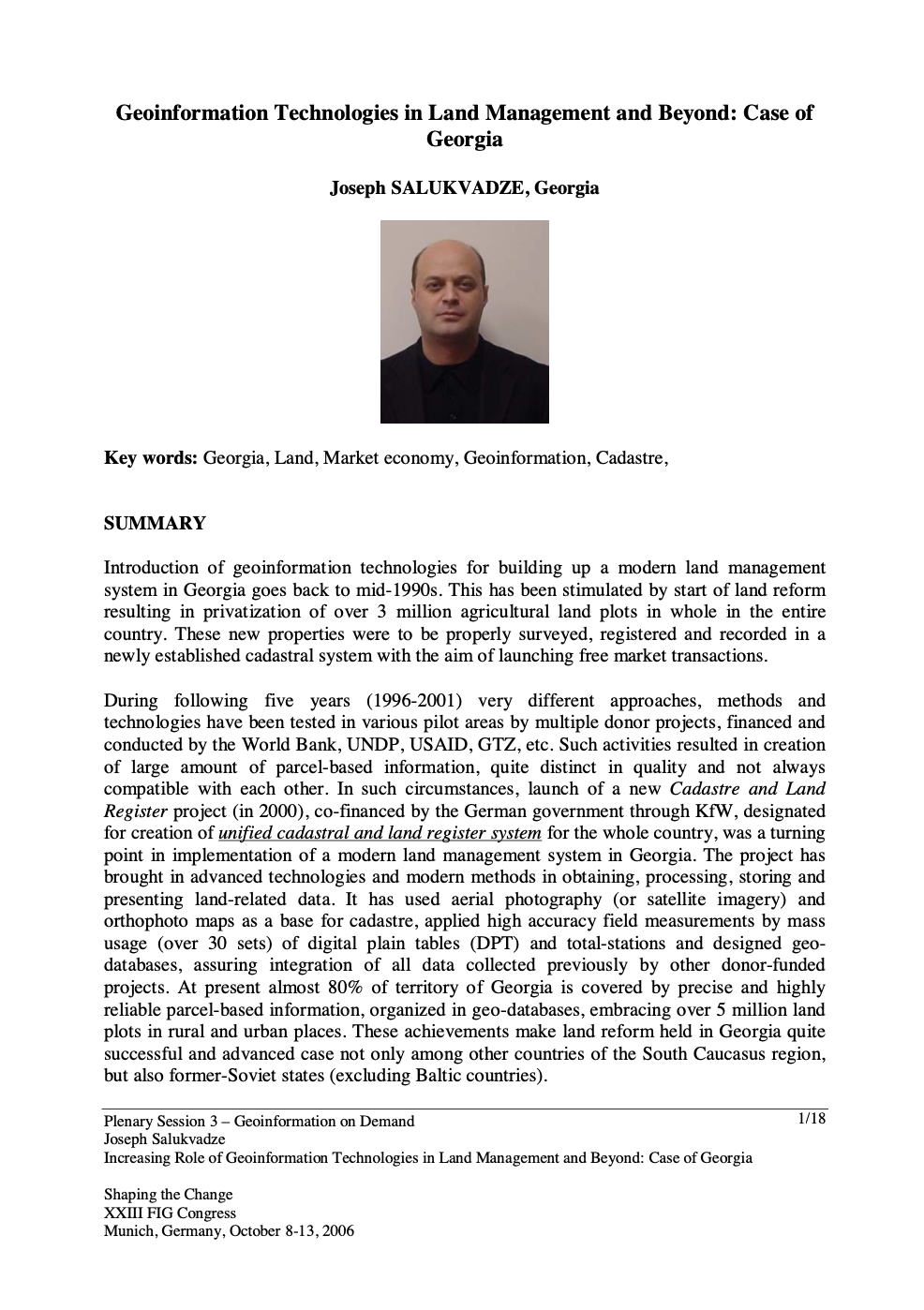Land grabbing: A review of extent and possible consequences in Romania
Land grabbing represents a fundamental problem in the transitional and post-transitional economies. The transfer of land property rights impose a dramatically change of agricultural production structure, including affecting the food safety and security. The main aim of this article is the analysis of the possible effects and transformation imposed by the transfer of land property in a post-transitional agricultural economy and to identify possible solution in valuing the lands as main production factors.
An Introduction to the Property Law of Afghanistan
ABSTRACTED FROM INTRODUCTION:
At the beginning of this textbook, the authors would like to make two suggestions about how to approach the study of property law.
Welfare Effects of Market Friendly Land Reforms in Uganda
This article estimates the poverty reducing impact of the recent land reforms and land transfers in the different land tenure systems of Uganda. Using balanced panel data for 309 households in 2001, 2003, and 2005, models that control for unobserved household heterogeneity and endogeneity of land acquisition and disposition are employed to measure the poverty-reduction effect of land on household expenditure per adult equivalent.
Tracing Agricultural Land Transfer in China: Some Legal and Policy Issues
This paper traces the evolution of land tenure changes in contemporary China since 1949. The transfer of land from peasant households to family farms and commercial sized units is on a vast scale and forms one of the greatest land reforms we have ever seen.
Verslag van een oriënterend onderzoek naar de onderzoek naar de invloed van de verkaveling op de bedrijfsvoering van landbouwbedrijven
Farm Land Policy and Financing Program for Young Generation in the Philippines
The Philippines is basically an agricultural country with about 30 per cent of the total land area of the country cultivated by almost 5 million farmers. However farm area devoted to agriculture has been decreasing due to land conversion. The basic problem is that Filipino farmers do not have the ability to buy their own lands. The Comprehensive Agrarian Reform Program was implemented to address this problem of landlessness thru redistribution of land.
Inequality in Bhutan: Addressing it Through the Traditional Kidu System
As global inequality is dropping, inequality within countries is rising. The problem of inequality is a cause for concern for nations as it undermines democracy and reduces welfare. Bhutan, a developing country in South Asia, also faces rising inequality. Based on the experience of the kidu system in Bhutan, this paper argues that the system is effective in reducing inequality of opportunity. The kidu functions as a welfare system in Bhutan, and is under the prerogative of the King of Bhutan. The traditional kidu system was reformed by the present monarch of Bhutan in 2006.
Liberal land reform in Kazakhstan? The effect on land rental and credit markets
This study analyses the effect of Kazakhstan’s 2003–2005 agricultural land reform on land rental and credit market participation. Although the reform declared an intention to facilitate efficient land alloca- tion, we observe a major land concentration. We analyze whether new land relations stimulated land sales and rental markets and made credit more accessible.
Geoinformation Technologies in Land Management and Beyond: Case of Georgia
Introduction of geoinformation technologies for building up a modern land management system in Georgia goes back to mid-1990s. This has been stimulated by start of land reform resulting in privatization of over 3 million agricultural land plots in whole in the entire country. These new properties were to be properly surveyed, registered and recorded in a newly established cadastral system with the aim of launching free market transactions.
Loi 67-23 du 22 juillet 1967 portant statut des biens domaniaux
La présente loi régit l’ensemble des biens (un domaine public et un domaine privé) appartenant à l’Etat, aux personnes publiques décentralisées et aux personnes morales de droit public subordonnées à l’Etat et possédant l’autonomie financière. A cet effet, ce texte définit la consistance et formation du domaine public et du domaine privé.







